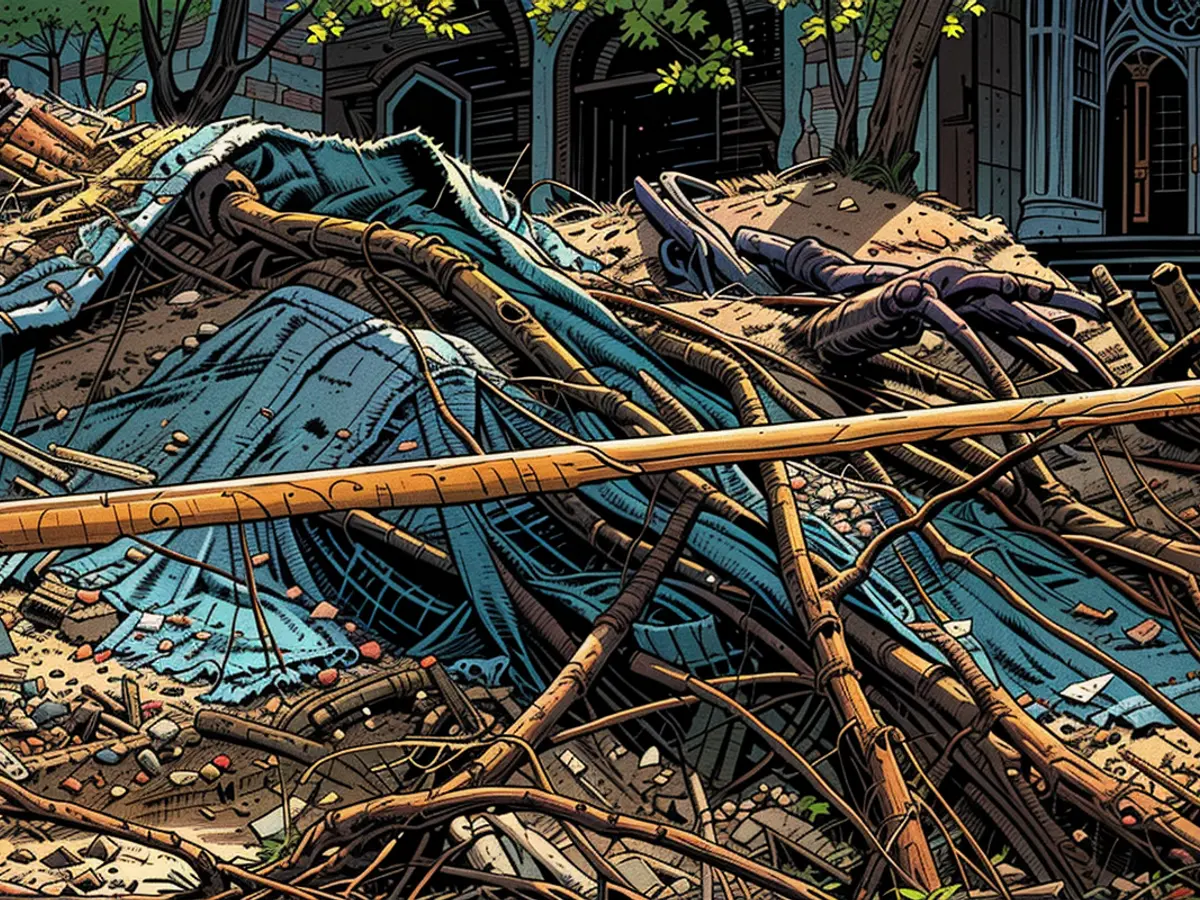- L'Ufficio dello Stato per l'Archeologia della Carolina del Nord, composto da esperti di entrambi Raleigh e Greenville, è stato chiamato per identificare e datare i ritrovamenti effettuati sul terreno della chiesa.
- Anche se Cenci ha servito da rettore della Chiesa Episcopale di Cristo dal 2019, sono stati i parrocchiani Ian Lowry, Robyn Nix e Sam Mancla a condurre ricerche estese, scoprendo documenti storici che indicavano che un uomo nero di nome George Davis possedeva la proprietà negli anni '800.
La rimozione di un albero in una chiesa della Carolina del Nord porta alla luce manufatti secolari
Cenci’s two passions coincided on June 20, 2023, when a multitude of items dating back several centuries were discovered in the yard of Christ Episcopal Church in Elizabeth City, North Carolina, where Cenci has served as rector since 2019.
He stated that the church's construction crew was digging up a century-old magnolia tree when the mundane suddenly turned into something extraordinary around lunchtime. The crew had struck something while digging up a pit for drainage beneath the stump.
When Cenci saw the almost dome-shaped structure that the crew had hit, he thought it might be a crypt or an unmarked soldier's grave, given the numerous battles fought in eastern North Carolina during the Civil War.
Cenci enlisted the help of a nearby parishioner to explore further. Soon, the two had extracted a bone that was eight inches long.
“I thought, ‘Oh gosh, maybe that’s a crypt after all,’” Cenci told CNN.
After instructing the construction crew to go home for the day, artifacts such as pottery, old and broken dishes, glassware, bottles, and more bones were unearthed from the loose, sandy ground filled with bricks.

With guidance and inspection from a local museum and an expert in early porcelain dating, the items were roughly dated from the early 1700s through the mid-1800s. The bones did not belong to human bodies but to animals – including a possible jawbone from a wild boar.
“The current theory is that maybe (the site) is either a root cellar that was associated with an early home or a cistern for water storage, again associated with another early home in the city,” Cenci said.
The North Carolina Office of State Archaeology from the Raleigh and Greenville offices was contacted to possibly further identify and date the items. Five days later, the ground was excavated, according to CNN affiliate WTKR.
After the state office agreed with the initial dating estimate, the items were labeled and placed on plates in the church's kitchen until they could be sent to the state office's conservation laboratory for testing.
Cenci was informed that either a team from the Raleigh or Greenville archaeology offices would return to the site, a graduate student from a local university would be tasked with continuing the excavation, or the church could hire an outside archaeological firm.
CNN has reached out to the state office of archaeology in Raleigh for comment.

Christ Episcopal Church was founded in 1825, but the building it currently occupies wasn't built until 1856, according to Cenci.
From research conducted by church parishioners Ian Lowry, Robyn Nix, and Sam Mancla, who delved into deeds, wills, and estate documents at the Pasquotank County courthouse, the group discovered that a Black man named George Davis owned the property in the early 1800s on which the church sits – on two of the most prime lots in the city.
His daughter Charlotte was married in the Episcopal church in 1833, according to church records and as posted by Lowry on Facebook. Nothing is confirmed yet, but some of the artifacts are thought to have belonged to Davis.
“(Davis) did very well for himself based on the items that have come out of the excavation site,” Cenci said. “We’ve found bottles of French wine and imported porcelain from China ... It seems we have unearthed the history of an early African American in our community that was quite influential and quite affluent in the town, which I think is really interesting.”
Cenci stated that all he did was halt the construction; Lowry, Nix, and Mancla are “the true heroes in this story as far as finding out what was in there and why it matters.”
With the church being founded in 1825, this discovery comes just in time for its 200th anniversary.

“As a Christian, I believe it’s God’s providential timing that it would happen right as we’re coming into our 200th anniversary,” Cenci said. “We’re getting this – almost like a time capsule – back to when the church was founded.”







